A menstrual period, or monthlies as they are known colloquially, is the monthly process in which women discharge blood and other bodily fluids from the uterus. This cycle’s natural process, which takes place when is not fertilized an egg, occurs when this happens.
What is the medical term for periods/Monthlies?
The medical term for periods is menses. Menses is the process by which the female reproductive system sheds the endometrium, or lining of the uterus, in the form of menstrual blood. It occurs in reproductive-aged women about once a month and is a sign that the woman’s body is functioning normally.
Menses is a natural part of the menstrual cycle, which is the series of hormonal and physical changes that occur in the body to prepare for pregnancy. The menstrual cycle is regulated by hormones produced by the ovaries, the pituitary gland, and the hypothalamus. Menses typically last a few days and can cause physical and emotional symptoms, such as abdominal cramping, bloating, and mood changes.
Menstrual cramps-
Many menstruate women experience dysmenorrhea, also known as painful periods or menstrual cramps. Menstrual pain can be acute and challenging, but several home remedies can provide relief.
Why are period cramps painful?
PCOS painful periods (Period cramps), also known as dysmenorrhea, are caused by contractions of the uterus that occur during menstruation. These contractions are necessary for shedding the endometrium or lining of the uterus, but they can also be painful. The severity of period cramps can vary from person to person, and some women may not experience any cramping at all.
Dysmenorrhea exists of two types-
Primary and secondary.
Primary dysmenorrhea is the most common type and is caused by the normal menstrual cycle. It typically begins a year or two after a person starts having periods and tends to improve as a person ages.
An underlying medical condition, such as endometriosis or uterine fibroids, causes secondary dysmenorrhea. The uterus releases prostaglandins during menstruation which are chemicals that cause period pain. Prostaglandins cause the smooth muscle of the uterus to contract, which helps to shed the endometrium.
They also cause inflammation, which can contribute to the pain of period cramps. The severity of period cramps can be influenced by various factors, including the number of prostaglandins produced, the sensitivity of the person to the effects of prostaglandins, and the presence of any underlying medical conditions.

Can painful menstrual cramps indicate something else?
Severe or long-lasting period cramps could indicate an underlying medical condition. If you experience period cramps that are particularly severe or not relieved by over-the-counter pain medication, it is speak to a healthcare provider.
Secondary dysmenorrhea, caused by an underlying medical condition, is a common cause of severe or persistent period cramps. Some possible underlying causes of secondary dysmenorrhea include:
- Endometriosis;
It is known as endometriosis and occurs when the tissue that typically lines the uterus develops outside. It can cause painful periods and fertility issues.
- Uterine fibroids:
These are noncancerous growths that can develop in the uterus. They can cause heavy periods, abdominal pain, and bloating.
- Adenomyosis:
The tissue that typically lines the uterus develops into the uterus’s muscular wall in this condition. It can cause heavy periods, abdominal pain, and bloating.
- Pelvic inflammatory disease (PID);
It is an infection of the reproductive organs that can cause painful periods and fertility issues.
- Intrauterine device (IUD):
Some IUDs can cause heavier periods and more painful cramps.
Are painful periods a sign of good fertility?
Period cramps, also known as dysmenorrhea, are not signs of good fertility. Severe or long-lasting period cramps could indicate an underlying medical condition that could affect fertility.
Primary dysmenorrhea, the most common type of period cramps caused by the normal menstrual cycle, is not typically associated with fertility issues. However, secondary dysmenorrhea, caused by an underlying medical condition, can sometimes cause fertility problems. Some possible underlying causes of secondary dysmenorrhea that can affect fertility include:
- Endometriosis
In endometriosis, the tissue that typically borders the uterus begins to spread from the uterus. It can cause painful periods and fertility issues.
- Uterine fibroids:
These are noncancerous growths that can develop in the uterus. They can cause heavy periods, abdominal pain, and bloating; in some cases, they can affect fertility.
- Adenomyosis:
This is a condition in which the tissue that normally lines the uterus grows into the muscular wall of the uterus. It can cause heavy periods, abdominal pain, and bloating, and it can also affect fertility.
- Pelvic inflammatory disease;
(PID) is an infection of the reproductive organs that can cause painful periods and fertility issues.
- Painful periods (PCOS)- Polycystic ovary syndrome;
(PCOS) is a common condition that affects the female reproductive system. It is characterized by a hormonal imbalance, which can cause various symptoms, including irregular periods, weight gain, and excess hair growth.
Many women with PCOS also experience painful periods, also known as monthlies. The pain of period cramps is caused by the release of prostaglandins, chemicals produced by the uterus during menstruation. Prostaglandins cause the smooth muscle of the uterus to contract, which helps to shed the endometrium.
They also cause inflammation, which can contribute to the pain of period cramps. In women with PCOS, the hormonal imbalance can increase the production of prostaglandins, which can make period cramps more severe.
If you have PCOS and are experiencing painful periods, speaking with a healthcare professional is a good decision. They can help manage your symptoms and recommend treatment options such as pain medication or hormonal birth control. It is also vital to manage any other symptoms of PCOS, as untreated PCOS can lead to long-term health problems such as diabetes and heart disease.
15 Most effective home remedies for menstrual pain-
Menstrual pain can be one of the women’s most uncomfortable and unpleasant experiences. Fortunately, many home remedies are available to help relieve the symptoms of dysmenorrhea. These home remedies can provide relief, from herbal teas to warming compresses. In this blog post, we’ll explore 15 of the most effective home remedies for menstrual pain so that you can find the best solution for your needs.
1- Herbal teas
Herbal teas are an excellent way to help relieve menstrual discomfort due to their natural calming properties. Some studies have suggested that drinking two cups of ginger tea daily throughout your cycle can help ease the abdominal pain associated with menstruation. Herbal tea is an excellent technique to relieve menstrual cramps. Many herbal teas contain anti-inflammatory compounds, which can help reduce pain and discomfort. Herbal teas such as chamomile, ginger, peppermint, and raspberry leaf can ease menstrual cramps.
What is a quick treatment for menstrual cramps? One of the fast ways to get relief is to drink a cup of herbal tea and sip on it while taking deep breaths. The anti-inflammatory compounds in the tea will help reduce inflammation, and the warmth of the liquid can soothe the abdominal area. It can provide relief in minutes, helping you get through your day with ease.
Tea for menstrual cramps-
Many herbal teas help alleviate menstrual cramps and other symptoms of PMS. Some examples include:
1. Chamomile tea:
Chamomile has a calming effect and may help to reduce muscle spasms and ease cramping.
2. Ginger tea:
Ginger has anti-inflammatory properties and may help reduce inflammation and cramping.
3. Peppermint tea:
Peppermint has a relaxing effect on the muscles and may help to reduce cramping.
4. Raspberry leaf tea:
Raspberry leaf is thought to help strengthen the uterus and may help reduce cramping.
5. Fennel tea:
Fennel has a relaxing effect on the muscles and may help to reduce cramping.
2- Heating Compressor
A warming compress is an excellent and immediate remedy for period pain. Applying a warm compress to the lower abdomen or lower back can reduce cramps, helping to relax the muscles in the belly and reduce the intensity of menstrual pain. To make a warming compress:
- Take a towel or washcloth and dip it in warm water.
- Squeeze excess water and apply it to the lower abdomen or lower back.
- Repeat after holding the compress for 15-20 minutes. Consider adding essential oils like lavender to the water for additional soothing effects.
A warm compress placed directly on the lower abdomen or lower back can provide quick relief from cramping and other symptoms associated with menstruation.
3- Eating a balanced diet
Your diet can help you with your pain, but it’s important not to overdo it. If you’re eating a healthy diet, you’ll likely have more energy, making it easier to deal with period pain.
Please pay attention when it comes to nutrition during this time.
- Eat more fruits and vegetables (especially greens).
- Eat more whole grains.
- Avoid processed foods (such as bread or pasta).
- Eat less salt.
- Avoid sweet foods.
- Eat less red meat.
It’s also a good practice for women who suffer from heartburn or acid reflux: Avoid red meat because it contains nitrates that can increase stomach acid production in some people—so instead, Stay with poultry!
4- Exercise
- Regular physical activity can help reduce the severity of cramps. .
- For quick relief from menstrual cramps, moderate exercises Exercises like brisk walking or swimming help ease pain.
- Exercise is a great way to reduce menstrual cramps.
- Regular exercise helps improve blood circulation and increase endorphins, the body’s natural pain relievers
- Exercise can be an effective treatment for menstrual cramps.
- Exercise can help you relax.
- Exercise can help you sleep better.
- Exercise can help you feel more in control of your pain.
- Exercise can help you feel more in control of your life.
- It’s also a great way to stay active.
- Exercise can help relieve your worst symptoms (or at least make them easier to deal with).
- Exercise helps reduce stress, which can exacerbate menstrual cramps.
Additionally, regular If your menstrual cramps are too severe to exercise, rest is vital. However, being active on other days can help prevent future pain.
5- Yoga
Yoga or other relaxation exercises can be beneficial by relieving tension in the pelvic area, which often exacerbates period pain.
Yoga is a great way to provide both immediate and long-term relief from menstrual pain. Practicing yoga can help you relax, reduce stress and tension, and increase circulation throughout your body. Certain yoga poses can be advantageous for relieving menstrual pain. Poses like Legs Up The Wall (Viparita Karani), Supported Bridge Pose (Setu Bandha Sarvangasana), and Corpse Pose (Savasana) can all help reduce discomfort.
An effective solution for period pain, try some relaxing breathing exercises, and gentle yoga stretches such as forward folds and hip openers. These will help relieve cramps and tension, bringing much-needed relief. Placing a heating pad or hot water bottle on the skin to your abdomen can be a great way to soothe painful menstrual cramps. It is because heat helps relax muscles and ease tension in the abdominal area.
6- Massage
Menstrual cramps and other related symptoms can be effectively treated with massage. Both at home and a professional massage therapist’s office are options. Massage increases circulation to the affected area, helping reduce muscle tension and pain. When it comes to period cramps, massage of the abdomen, lower back, and upper legs are willing to help.
When massaging, use slow, gentle strokes and apply pressure gradually, increasing as tolerated. It is essential to focus on the areas that are causing you pain and discomfort. Applying gentle pressure around the lower abdomen and pelvis may help provide immediate relief for period pain. If you have a partner or friend willing to give you a massage, it can also help.
In addition to providing relief from menstrual cramps, massage can also be a great way to reduce stress and anxiety during your period. Taking time out to relax and enjoy a massage can be very beneficial. Ultimately, massage can provide effective relief from menstrual cramps and discomfort. It is ideal for those looking for a natural, non-medicated way to ease period pains.
7- Heat Pack
Applying heat to your lower abdomen or back can help relax your muscles and reduce cramps. Heat packs are one of the most immediate remedies for period pain. A heat pack is a device that delivers heat therapy to help relieve pain and muscle tension. Heat packs are available in various sizes and shapes, ranging from small self-adhesive pads to large electric blankets. Heat packs can be placed directly on the abdominal area or lower back to help reduce cramping.
Applying heat to the affected area increases blood flow and relaxes muscles, thus providing pain relief. Many people also find that a hot bath helps with menstrual cramps. The combination of warmth and buoyancy can have a calming effect on the body, which is needed to ease painful contractions. Soaking in an Epsom salt bath can add further benefits due to the minerals it contains.
- The heat helps to relax the muscles.
- The heat helps to reduce inflammation.
- Use heat packs or hot water bottle.
- Apply heat to the abdomen, lower back, and thighs.
- Do not use heat for more than 20 minutes at a time.
- Do not use heat on skin that is broken or sensitive.
- Activity increases blood flow, which helps to reduce pain.
8- Take a hot bath.
The best way to get quick relief is by applying heat directly to the affected area or taking a warm bath. So what is the immediate cure for period pain? A hot bath can be an immediate remedy for period pain. A hot bath helps relax the muscles and alleviate the pain that can come with menstruation. Fill your bathtub with warm or hot water, and add Epsom salts or essential oils to the water to further enhance relaxation.
Allow yourself to soak in the warm water for 10–20 minutes, ensuring your body temperature is not too high. After your soak, you should feel relaxed and more comfortable. It can be a great way to ease menstrual cramps and help you feel more relaxed.
9- Pain relievers
When finding an immediate remedy for period pain, pain relievers such as ibuprofen and naproxen are often the go-to. These medications help reduce cramps and inflammation reactions in the body. Ibuprofen and naproxen can be taken up to three times a day with food, but always follow the instructions on the package carefully. It’s important to note that these medications may cause side effects such as stomach discomfort or an increased risk of bleeding, so if you’re concerned, consult your doctor before taking them. Additionally, natural alternatives may also bring relief without causing any adverse reactions.
10- Probiotics
When it comes to an immediate remedy for period pain, probiotics can provide some relief. Beneficial bacteria known as probiotics support your gut health and boost your immune system. Taking a daily probiotic supplement can help reduce inflammation and balance your hormones, reducing menstrual cramps’ intensity. Probiotics can also help alleviate symptoms such as bloating, fatigue, and headaches during your period. To get the most benefit, look for a probiotic containing at least 10 billion CFUs (colony-forming units) and multiple strains of bacteria.
11- Foods rich in omega-3 fatty acids
Omega-3 fatty acids are essential nutrients that help reduce inflammation and provide natural relief from menstrual pain. Fatty-acid omega-3-rich meals include fish, walnuts, flaxseeds, chia seeds, hemp seeds, and olive oil. If you’re looking for an immediate remedy for period pain, try consuming a healthy snack or meal rich in omega-3 fatty acids. Eating small meals all day long can also be beneficial reduce period pain.
12- Vitamin B6
The most vital vitamin is vitamin B6 for treating menstrual pain. It is essential for producing serotonin, which helps to reduce inflammation and, therefore, can be an effective immediate remedy for period pain. Vitamin B6 also helps reduce the intensity of menstrual cramps.
The ideal method to obtain vitamin B6 is through a diet that includes foods rich in this vitamin, such as legumes, bananas, spinach, tuna, potatoes, and chicken. Vitamin B6 can also be taken as a supplement. It is essential to consult with a doctor before taking any supplements to make sure they are right for you.
13- Magnesium
Magnesium is a mineral that helps relax the muscles and nerves and has been linked to relieving menstrual cramps. It can be eaten as a supplement or found in foods such as spinach, almonds, and cashews. Suppose you’re looking for an immediate remedy for period pain. In that case, you can also try taking an Epsom salt bath—the magnesium will be absorbed through the skin and help to reduce inflammation and cramping. Ensure that you follow to the directions on the packaging. when taking any supplement.
14- Drink plenty of water-
- drinking plenty of water keeps the body hydrated and helps to flush out toxins.
- water also helps to keep your digestive system running smoothly.
- water helps to keep your metabolism running at its best.
- drink at least 8- glasses of water per day.
15- Try acupuncture
Acupuncture is an ancient Chinese healing practice that involves injecting small needles into certain body areas. Its practice is believed to release endorphins and other hormones to help relieve pain and tension. Acupuncture is an effective way to reduce period pain, cramps, and other PMS symptoms.
According to studies, it can promote blood flow to the uterus, reduce inflammation, and increase the production of endorphins, all of which can help reduce menstrual pain. If you are looking for an immediate remedy for period pain, acupuncture is an option you should consider.
While it can be costly, many people find it a worthwhile investment in their health and well-being. Consult a qualified acupuncturist to see if this approach is right for you. Acupuncture is another form of natural therapy that is gaining traction as an effective way to manage dysmenorrhea.
Specific body points are stimulated by acupuncture to work to stimulate energy pathways, which ultimately help relieve muscle tension associated with period pain. Finally, trying out acupressure points on your body can also bring temporary relief from menstrual cramps. To release any tension built, gently press a few areas on your abdominal area with your fingertips.
16- Relaxation techniques
Techniques such as deep breathing and meditation can help reduce the pain and discomfort of cramps.
Relaxation techniques are a great way to alleviate period pain and discomfort. Some relaxation techniques include deep breathing, meditation, visualization, progressive muscle relaxation, and guided imagery. Deep breathing can be used as an immediate remedy for period pain. Do this, take long, slow breaths using your mouth to breathe in and out, focusing on each breath and letting any tension in your body dissipate.
Meditation is another excellent way to relax and bring awareness to your body. It can be done by focusing on an object, repeating a mantra, or counting your breaths.
Visualization can also help you relax. It involves imagining yourself in a peaceful place and picturing yourself feeling relaxed and at ease. Progressive muscle relaxation helps to reduce tension throughout the body by tensing and releasing different muscles. Finally, guided imagery involves picturing a relaxing scene and allowing your body to relax. All these relaxation techniques can be incredibly beneficial for relieving period pain and discomfort.
15- Over-the-counter pain medications:
Another quick remedy for period pain is taking an over-the-counter pain reliever, such as ibuprofen or naproxen sodium, which are known to work quickly at reducing menstrual cramp discomfort. Try a warm bath with Epsom salts or essential oils, which can help relieve muscle spasms in the uterus and reduce inflammation.
Nonsteroidal anti-inflammatory drugs (NSAIDs) such as ibuprofen and naproxen can help reduce cramps and pain. Suppose you’re looking for an even more convenient solution. In that case, many over-the-counter products, such as heating pads or topical creams containing natural ingredients such as arnica or St. John’s Wort, can help relieve period pain.
16- Bowel movement
If you’re looking for a quick and easy way to relieve period cramps, try drinking a glass of warm water with lemon juice. It has been shown to help reduce pain in some women.
If you’d rather your drink not taste like lemon juice (or if it’s just not in season), try drinking hot Ovaltine instead! It will still work as an effective remedy for menstrual cramps even though it contains no citrus fruits.
If you prefer something more nutritious than Ovaltine but still want something that tastes good—and won’t leave behind any strange aftertastes—try eating lots of leafy greens such as kale or spinach while on your period: they’re high in fiber and Vitamin A, which helps reduce inflammation throughout the body; they also contain magnesium, which relaxes muscles, so they don’t contract as much when under stress during menstruation.
- Bowel movements help relieve menstrual cramps.
- bowel movement can be done by drinking a glass of warm water with lemon juice
- Bowel movement can also be achieved by eating a healthy diet.
- Bowel movement can also be done by taking some over the counter pain killers
17- See your doctor
If home remedies are not providing you with the relief you need from menstrual pain, it is important to consult your doctor. Dysmenorrhea can sometimes be caused by an underlying health issue such uterine fibroids or endometriosis. Your doctor can help you determine if there is a cause for your menstrual pain and provide you with the advice that will be most effective.
Your doctor may prescribe drugs in various circumstances to help ease the symptoms of menstrual pain. Ibuprofen and naproxen are examples of non-steroidal anti-inflammatory medicines (NSAIDs), which are commonly used to reduce menstrual cramps. Other medications that can be prescribed to help reduce dysmenorrhea include oral contraceptives and hormonal IUDs.
Why are menstrual cramps worse at night?
Some possible reasons why menstrual cramps are worse at night are:
Relaxation:
When you are relaxed or asleep, your muscles are more comfortable, which can cause increased blood flow to the uterus. They boost blood flow and can cause the uterus to contract more strongly, causing more intense pain.
Position:
The position you sleep in can also affect the severity of your pain. For example, if you sleep on your stomach, the weight of your body pressing on your stomach can increase the pressure on your uterus and cause more severe pain.
Hormonal fluctuations:
Hormonal changes during the menstrual cycle can also contribute to pain intensity. For example, levels of the hormone prostaglandin, which is involved in uterine contractions, may be higher at night.
Stress:
Stress and anxiety can also aggravate menstrual cramps. If you are more stressed at night or have trouble sleeping, this may contribute to the severity of your pain.
It’s worth noting that the severity of menstrual cramps can vary widely from person to person and can be affected by factors, including age, overall health, and any underlying medical conditions.
Hi there! I’m content writer and blogger. With over two years of experience, I’ve shared my passion for writing across various platforms. I firmly believe in the transformative power of words and look forward to sharing this journey with you. Enjoy my work!
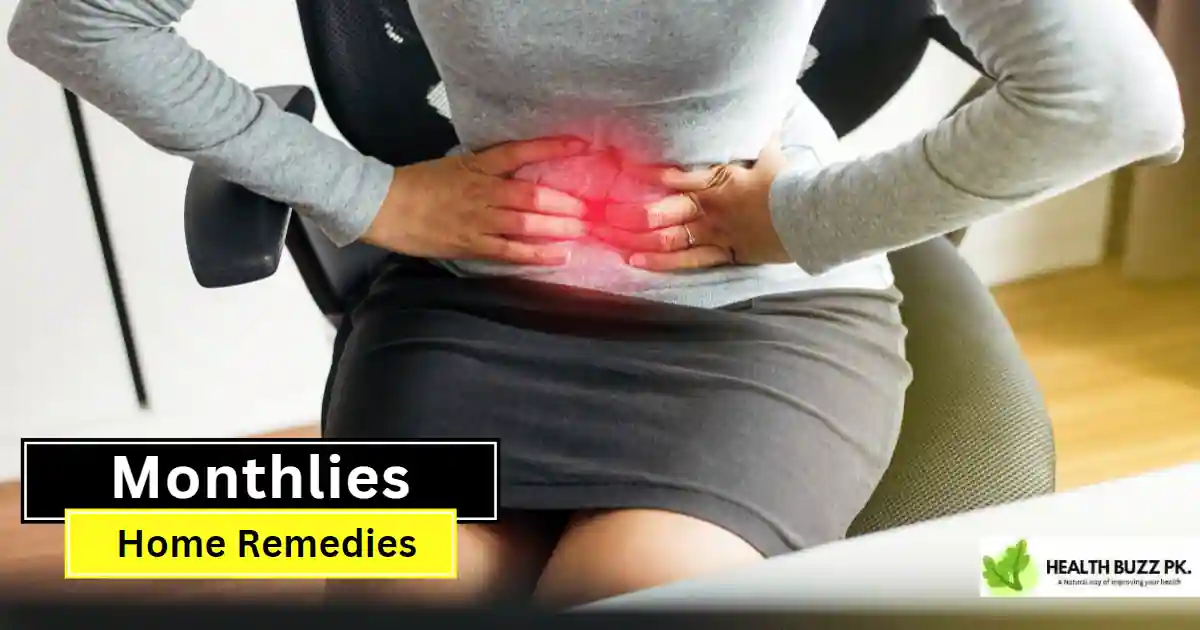


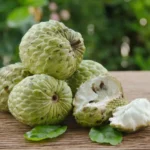

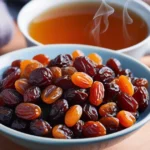
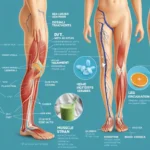


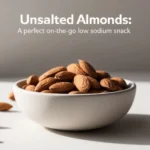
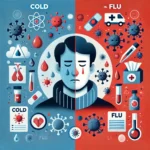
Thanks for the important information 🙂